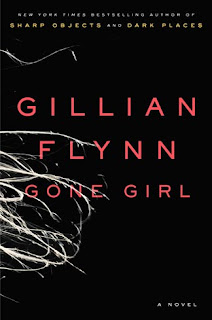A struggling marriage is put to a disturbing test when a beautiful wife goes missing
I really shouldn't have waited until 2018 to read Gone Girl.
Not because the movie already came out – I haven't watched it yet. Not because I've seen that "Cool Girl" quote, taken way out of context, on various social media feeds. And not because the events and theme of Gone Girl were topical to 2012, when Entertainment Weekly writer Gillian Flynn published her thriller/murder mystery.
It’s because in 2018, I became a more savvy observer of media-controlled narratives, and frankly, I've had enough of them.
This is not Flynn's fault. She crafted a nail-baiting thriller that keeps the reader on edge and weaves together the themes of modern marriage, media coverage, story-telling, and identity. Flynn does an excellent job of creating a world through her characters and creating a tantalizing criss-cross of her two mains' perceptions: we learn more about Nick, the beleaguered husband of the literary Amy, through the gaps in his knowledge of said wife, who appears to have been keeping several secrets from him. The readers are soon presented with two versions of Amy, solving the main mystery roughly halfway through the novel and leaving the characters to fend for themselves. Through the on-paper perfect match of Nick and Amy (one a nice Midwestern boy, the other an east coast elite), Flynn gets in some sharp observations about relationships and the roles we play, consciously or unconsciously, within them.
While reading Gone Girl, my cynicism grew and grew. As the seedy underbelly of Nick and Amy's marriage exposes itself, I quickly came to the conclusion that not much of anything mattered. A sudden act on Nick's part that comes toward the end is meant to shock us (I believe), but after seeing the story unfold the way it did, I was immune to shock. In the end, I realized that for all of Flynn's sharp observations about marriage, middle American life, and the media, none of them were new, nor did they inspire great complex thoughts. The theme of the use of narrative – by characters, by the news media, by police reports, shaped by lies and omissions – puts into sharper relief that the story of Nick and Amy is empty and without meaning. At different points near the end, the two main characters make substantially the same decision – but they base their decision-making on others' actions. It would be sad if they weren't so empty.
The cynical writer is not often in step with the cynical reader. Both bring their own agendas to the text in a game of one-upmanship. This is a slick, clever novel with several twists; one is very satisfying, while the rest have diminishing returns. But some readers in 2018, with the Russian interference in our elections, Facebook giving away our personal information, and "fake news" now an enduring phenomenon, might be hyper-aware of being constantly manipulated and lied to. I wouldn't blame those readers for skipping Gone Girl. Even the cleverest manipulation can wear on the most advanced cynic.
Read Gone Girl for the mystery. But it's impossible to get lost in its fiction when it reminds you so much of the real world.



Comments
Post a Comment